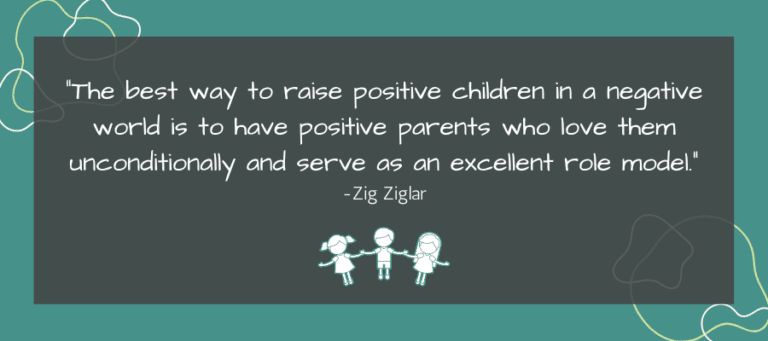
13 Ways Parents can Empower their Children
As a parent, you want your child to succeed in life and to grow up to be a confident, capable adult. One way to help your child achieve these goals is to empower them. Parents need to empower their children because it helps them to develop a sense of self-worth, confidence, and resilience. When children feel empowered, they are more likely to take risks, try new things, and overcome challenges. This can help them to develop important life skills and to achieve their goals.
If the parents are not empowering their children it will lead to many reasons of being a child orphan, and one of the main reasons why children become orphans is due to a lack of access to education. When parents empower their children by encouraging them to pursue their education, they are supporting their healthy development and helping to prevent them from becoming orphans. Education can help children develop important life skills, increase their future economic opportunities, and improve their overall quality of life.
Another reason why children become orphans is due to a lack of economic opportunities. When parents empower their children by teaching them life skills such as financial management, entrepreneurship, and problem-solving, they are helping to prepare them for future economic opportunities. This can help prevent them from becoming orphans due to poverty and economic hardship.
If the parents are not empowering their children it will lead to many reasons of being a child orphan, and one of the main reasons why children become orphans is due to a lack of access to education. When parents empower their children by encouraging them to pursue their education, they are supporting their healthy development and helping to prevent them from becoming orphans. Education can help children develop important life skills, increase their future economic opportunities, and improve their overall quality of life.
Another reason why children become orphans is due to a lack of economic opportunities. When parents empower their children by teaching them life skills such as financial management, entrepreneurship, and problem-solving, they are helping to prepare them for future economic opportunities. This can help prevent them from becoming orphans due to poverty and economic hardship.

Empowerment is about giving your child the tools they need to succeed, and helping them to believe in themselves and their abilities. In this blog post, we’ll discuss some practical ways that parents can empower their children.
1. Encourage Your Child to Speak Up
One of the most important ways to empower your child is to encourage them to speak up. This means giving them the space to express their thoughts, opinions, and ideas, and valuing their input. When your child feels heard and respected, they are more likely to develop a sense of confidence and self-worth.
When parents teach their children about the importance of social justice and advocate for the rights of vulnerable children, they are helping to create a better future for all children. This can help prevent children from becoming orphans due to systemic issues such as poverty, discrimination, and neglect.
To encourage your child to speak up, you can start by listening actively when they talk to you. This means giving them your full attention, and responding with empathy and understanding. You can also ask your child questions and encourage them to share their thoughts and feelings. It’s also important to create a safe environment for your child to express themselves. Make it clear that their opinions are valued, and that you won’t judge or criticize them for speaking up. When your child feels safe to express themselves, they are more likely to take risks and try new things.
When parents teach their children about the importance of social justice and advocate for the rights of vulnerable children, they are helping to create a better future for all children. This can help prevent children from becoming orphans due to systemic issues such as poverty, discrimination, and neglect.
To encourage your child to speak up, you can start by listening actively when they talk to you. This means giving them your full attention, and responding with empathy and understanding. You can also ask your child questions and encourage them to share their thoughts and feelings. It’s also important to create a safe environment for your child to express themselves. Make it clear that their opinions are valued, and that you won’t judge or criticize them for speaking up. When your child feels safe to express themselves, they are more likely to take risks and try new things.
2. Teach Your Child to Make Decisions
Empowering your child also means teaching them how to make decisions. This means giving them the skills and tools they need to evaluate options and make choices that are right for them.
To teach your child to make decisions, start by involving them in the decision-making process. For example, if you’re planning a family vacation, ask your child for input on where to go and what to do. Give them a few options to choose from, and encourage them to weigh the pros and cons of each option.
You can also teach your child to make decisions by giving them opportunities to practice. For example, let them choose what to wear or what to have for dinner. As your child gets older, you can give them more complex decisions to make, such as whether to take on a part-time job or which college to attend.
To teach your child to make decisions, start by involving them in the decision-making process. For example, if you’re planning a family vacation, ask your child for input on where to go and what to do. Give them a few options to choose from, and encourage them to weigh the pros and cons of each option.
You can also teach your child to make decisions by giving them opportunities to practice. For example, let them choose what to wear or what to have for dinner. As your child gets older, you can give them more complex decisions to make, such as whether to take on a part-time job or which college to attend.
3. Help Your Child Set Goals
Another way to empower your child is to help them set goals. When your child has clear goals to work towards, they are more likely to feel motivated and confident in their abilities.
To help your child set goals, start by encouraging them to think about what they want to achieve. Ask them what they enjoy doing, and what they’re passionate about. Then, work with them to set specific, achievable goals that align with their interests and passions.
It’s also important to help your child break down their goals into smaller, manageable steps. For example, if your child’s goal is to become a professional musician, you can help them set smaller goals like practicing for a certain amount of time each day or performing in front of a small audience.
To help your child set goals, start by encouraging them to think about what they want to achieve. Ask them what they enjoy doing, and what they’re passionate about. Then, work with them to set specific, achievable goals that align with their interests and passions.
It’s also important to help your child break down their goals into smaller, manageable steps. For example, if your child’s goal is to become a professional musician, you can help them set smaller goals like practicing for a certain amount of time each day or performing in front of a small audience.
4. Encourage Your Child to Take Risks like Take their Interests and Passions
Empowering your child also means encouraging them to take risks. When your child takes risks, they learn new things and build their confidence.
To encourage your child to take risks, start by creating a safe environment for them to try new things. Let them know that it’s okay to make mistakes, and that you’re proud of them for trying. Encourage them to step outside their comfort zone and try things that scare them a little.
You can also model risk-taking behavior for your child. Share your own experiences of taking risks, and talk about how they helped you grow and learn. This will show your child that taking risks is a normal part of life, and that it can lead to positive outcomes.
Encouraging your child’s interests and passions is another important way to build their self-esteem. When children are engaged in activities they enjoy, they are more likely to feel confident and capable.
For orphans and vulnerable children, providing opportunities to explore their interests and passions can be particularly important. These children may have had limited opportunities for enrichment or may have been discouraged from pursuing their interests in the past. By encouraging their passions, parents can help these children to develop a sense of purpose and self-worth.
To encourage your child to take risks, start by creating a safe environment for them to try new things. Let them know that it’s okay to make mistakes, and that you’re proud of them for trying. Encourage them to step outside their comfort zone and try things that scare them a little.
You can also model risk-taking behavior for your child. Share your own experiences of taking risks, and talk about how they helped you grow and learn. This will show your child that taking risks is a normal part of life, and that it can lead to positive outcomes.
Encouraging your child’s interests and passions is another important way to build their self-esteem. When children are engaged in activities they enjoy, they are more likely to feel confident and capable.
For orphans and vulnerable children, providing opportunities to explore their interests and passions can be particularly important. These children may have had limited opportunities for enrichment or may have been discouraged from pursuing their interests in the past. By encouraging their passions, parents can help these children to develop a sense of purpose and self-worth.
5. Build Your Child’s Self-Esteem
Building your child’s self-esteem is an important aspect of empowering them, and it is particularly relevant for global orphan prevention. Orphans and vulnerable children are often at risk of low self-esteem due to the trauma and loss they have experienced. Building their self-esteem can help them to develop a sense of resilience and confidence, which can support them in overcoming the challenges they face.
6. Provide Unconditional Love and Support
Empowering children can also help to prevent them from becoming orphans due to emotional neglect or abuse. When parents provide their children with unconditional love, support, and guidance, they are helping to create a stable and supportive environment for their healthy development. This can help prevent children from feeling neglected, abandoned, or abused, which can lead to them becoming orphans.
Children need to feel loved and supported by their parents in order to develop a healthy sense of self-esteem. Providing unconditional love and support means being there for your child, no matter what. It means listening to them, validating their feelings, and supporting them through difficult times.
For orphans and vulnerable children, this can be particularly important, as they may have experienced significant loss and trauma in their lives. By providing a stable, loving presence, parents can help these children to develop a sense of security and self-worth.
Children need to feel loved and supported by their parents in order to develop a healthy sense of self-esteem. Providing unconditional love and support means being there for your child, no matter what. It means listening to them, validating their feelings, and supporting them through difficult times.
For orphans and vulnerable children, this can be particularly important, as they may have experienced significant loss and trauma in their lives. By providing a stable, loving presence, parents can help these children to develop a sense of security and self-worth.
7. Celebrate Your Child’s Achievements
Acknowledging and celebrating your child’s achievements is another important way to build their self-esteem. When you praise your child for their accomplishments, it helps them to feel proud of themselves and to develop a sense of confidence in their abilities.
It’s important to be specific when praising your child. Rather than simply saying “good job,” try to highlight what specifically they did well. For example, “I’m so proud of you for working so hard on your math homework and getting an A” or “You did a great job speaking up in class today, your confidence is really growing.”
It’s important to be specific when praising your child. Rather than simply saying “good job,” try to highlight what specifically they did well. For example, “I’m so proud of you for working so hard on your math homework and getting an A” or “You did a great job speaking up in class today, your confidence is really growing.”

8. Provide Opportunities for Mastery
Providing opportunities for mastery is another important way to build your child’s self-esteem. When children are able to master a skill or task, it helps them to feel competent and capable.
For orphans and vulnerable children, providing opportunities for mastery can be particularly important. These children may have experienced significant challenges in their lives and may feel like they have little control over their circumstances. By providing opportunities for mastery, parents can help these children to feel empowered and in control of their lives.
For orphans and vulnerable children, providing opportunities for mastery can be particularly important. These children may have experienced significant challenges in their lives and may feel like they have little control over their circumstances. By providing opportunities for mastery, parents can help these children to feel empowered and in control of their lives.
9. Teach Your Child to Be Kind to Themselves and Others
Finally, it’s important to teach your child to be kind to themselves. Children who are critical of themselves or who have a negative self-image are at risk of low self-esteem.
Teaching your child to be kind to themselves means helping them to develop a positive self-image. Encourage your child to focus on their strengths rather than their weaknesses, and help them to see themselves in a positive light. Remind them that it’s okay to make mistakes and that they are valuable and worthy just as they are.
By teaching their children to be kind to others, this means helping them develop a sense of empathy and compassion, and teaching them to treat others with kindness and respect. This can help children develop a strong sense of social responsibility, which can support them in making positive contributions to their communities.
Teaching your child to be kind to themselves means helping them to develop a positive self-image. Encourage your child to focus on their strengths rather than their weaknesses, and help them to see themselves in a positive light. Remind them that it’s okay to make mistakes and that they are valuable and worthy just as they are.
By teaching their children to be kind to others, this means helping them develop a sense of empathy and compassion, and teaching them to treat others with kindness and respect. This can help children develop a strong sense of social responsibility, which can support them in making positive contributions to their communities.
10. Foster Independence
Parents can also show empowerment by fostering independence in their children. This means allowing their children to take on more responsibility and make decisions for themselves. This can help children develop a sense of autonomy and self-reliance, which can support them in navigating the challenges of adulthood.
11. Provide Consistent Boundaries and Structure
Parents can also show empowerment by providing consistent boundaries and structure. This means setting clear expectations for their children’s behavior, and providing consequences when those expectations are not met. This can help children develop a sense of accountability and responsibility, which can support them in making good choices and avoiding negative behaviors.
12. Encourage Critical Thinking
Parents can also show empowerment by encouraging critical thinking in their children. This means teaching them to ask questions, evaluate information, and make informed decisions. This can help children develop a sense of intellectual curiosity and creativity, which can support them in pursuing their interests and passions.
13. Create a Safe and Supportive Environment
Finally, parents can show empowerment by creating a safe and supportive environment for their children. This means providing a stable and loving home, and offering emotional support and guidance when their children need it. This can help children develop a sense of security and well-being, which can support them in achieving their goals and overcoming challenges.
Parents empowering their children is essential to global orphan prevention because it can help prevent children from becoming orphans in the first place. By supporting their healthy development, providing access to education and economic opportunities, providing emotional support, encouraging community engagement, and advocating for social justice, parents can help create a better future for all children around the world.
Parents empowering their children is essential to global orphan prevention because it can help prevent children from becoming orphans in the first place. By supporting their healthy development, providing access to education and economic opportunities, providing emotional support, encouraging community engagement, and advocating for social justice, parents can help create a better future for all children around the world.
Share on facebook
Facebook
Share on linkedin
LinkedIn
